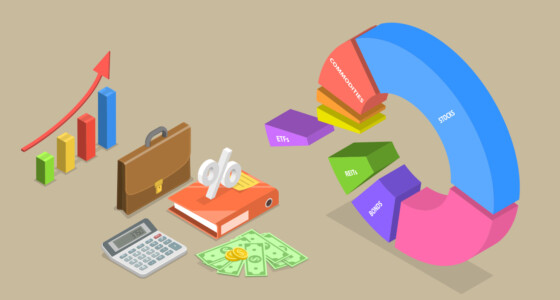

Did you know that overtrading occurs primarily due to poor strategy? The pressure to grow the portfolio can often come at the price of declining health, and financial loss.
An analysis of overtrading examples in the past has generated multiple strategies that will be discussed in this article. Hope this will be of utmost help to traders trying to fight overtrading!
How the overtrading psychology works and what to do about it
The habit of overtrading is often difficult to detect and can be overlooked by many until it is too late. Most often, the traders do not see anything wrong with overtrading. As such, they continue with their ways assuming that they are just chasing the trade for success.
In saying so, the underlying cause of overtrading is actually the fear that the trader is somehow missing out on good opportunities. Actively doing something, or in this case, engaging in online trading platforms becomes a habit just to kill boredom.
“Don’t confuse being busy with being productive”.
Karen McKenna
Regardless, feelings of frustration, greed, inadequacy, boredom, anger, and lack of conviction are other factors that contribute to overtrading.
If the trader has suddenly found himself/herself caught in the grip of overtrading, help is just a few steps away. Having a checklist to remind the trader of his/her reality can assist the individual to set things right at last!
1. Get a reality check
The first step to realizing that someone is overtrading is by reviewing past trades. A good look at past records will give the individual ideas about whether he/she is overtrading, under-trading, or just doing what must be done.
If the trader is going through any of the symptoms illustrated at the beginning of this article, it can be said that there is a problem with overtrading.
Analyzing the past performance can say a lot about whether one has been meeting the trade criteria. Typically, the criteria can include technical pattern setup, trigger, target, and stop-loss.
2. Handle recurring emotions
In business or in personal life, an individual must handle his/her emotions unless he/she wants to get run over by them! Fear of missing out, impatience, and frustration can only drag a person down.
The trick is to believe that everything will somehow work out for the better. Because the more one agonizes about the outcome, the more frustrated one will be. How about letting the trade arrive at its pace?
In the meantime, inspect multiple stocks, and find the right triggers. When that is found, that is the time to act on the plan. But if there are no triggers, it is better to wait calmly.
3. Apply the 80/20 rule
Once past trade performances have been checked, and emotions handled successfully, master the 80/20 rule. This rule allows the broker to acquire 80% results from 20% effort. To put it another way, the more relaxed the trader is, the easier the results arrive.
4. Stop micromanaging
Micromanaging is the root of all performance killers. What can be considered micromanaging in trading? Watching trades 24×7, searching for external confirmation on media platforms, rummaging through stop loss and profit orders all the time, and adding to trades for no reason.
There is an incredible technique to stop micromanaging in trading, which is known as the set-and-forget approach. Analyze the trade, set the trade, and then forget about it. Instead of constantly checking on progress, take a breather, and let the price reach your stop or profit order!
5. Implement a checklist
Checklists serve the purpose of not messing up standard procedures of trading. Some trading companies may already be using this method. To overcome overtrading, one can implement a checklist before entering a trade!
In the checklist, write down the mandatory and additional criteria for trading. Since trading pattern recognition, monitoring, and entering is straightforward and repetitive processes, the checklist can help to keep the trades in check.
6. Be selective about trading
Overtrading psychology mentions an impulse to keep trading at all costs. However, that mentality is what caused the demise.
Level-headed traders know when to trade and when to opt out. They know when the trade is profitable, and when it is just a waste of time. With that being said, even one good trade a week is better than several, overbearing trades.
A good balance is required in trading. The moment the trader loses emotional balance, which is when his/her overtrading tendencies take over.
7. Take a step back
Once the trader has gone through the side effects of overtrading day trading, he/she can tell when it is hitting him/her next. When the feeling takes over, instantly move away from the trade to take a breather.
Forget the checklist, market stimulants, newsfeed, and anything else related to commerce. The mind needs to disengage to replenish itself. This break is much needed to regain control over the market afterward.
Depending on individuals, this break can be for a day, a week, or even a month. In fact, the best skill a trader can possess is the power to detach when necessary and get back to work after a certain period of time.
Bottom line
These useful tips to break the habit of overtrading were collected and compiled from real-life strategies that worked for many. For the most part, people finding their way to this article says enough about their determination to overcome this jeopardizing habit.
If all these strategies are followed properly, positive results are bound to emerge sooner or later!







